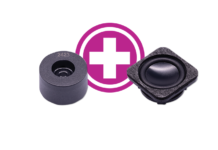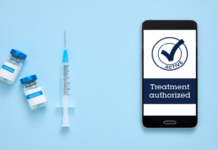
Clinical Research And Development
In clinical trials, researchers must know how their results will apply to patients who may use their product or procedure. If they conduct the study without accurate data, this failure might negatively impact the ability of drug companies to obtain food and drug administration (FDA) approval for new drugs. In turn, the bottom line won’t be able to produce medications, and patients will have to wait longer for effective treatments for their medical issues.
Thus, health corporations must be able to transform clinical research and development. Technology is having a significant impact on clinical research and development (CR&D). These technologies enable researchers to access data more securely and efficiently while sharing data among different teams and organizations.
In doing so, they’ll be able to achieve trial accuracy and receive these five benefits, which include:
- Automating Laborious Manual Tasks
Clinical research is a complex process that involves numerous stakeholders, such as contract research organizations (CROs), sponsors, data managers, statisticians, and clinicians. Data management consists of cleaning up raw data from various sources, such as electronic medical records (EMRs), laboratory systems, and imaging devices. This process can be laborious if done manually due to its repetitive nature.
With the help of technology, companies can eliminate these tasks using automation tools like clinical trial software from https://www.formedix.com/. For instance, they can automatically acquire data from EMRs or other systems using active pharmaceutical ingredients (API) and data science techniques. Aside from that, they may also run advanced analytics on the acquired insights without needing information technology (IT) intervention.
- Performing Better Predictive Analytics
Pharmaceutical companies have been collecting massive amounts of data about patients for decades. However, only recently have they been able to analyze it in ways that help them understand what drives different diseases and how treatments can be more effective. With better predictive analytics capabilities, pharmaceutical companies can make important decisions earlier in the drug discovery process, such as whether a particular drug candidate is worth developing.
Predicting clinical trial outcomes using machine learning can help pharmaceutical companies optimize their drug pipelines, saving time and money by eliminating candidates that are unlikely to succeed. In addition, this technique could help identify novel therapeutic targets for existing drugs by analyzing data from previously conducted trials. This modernization might improve treatments for patients suffering from rare diseases or other unmet medical needs.
- Improving Machine Learning
Machine learning allows systems to learn without being explicitly programmed. They can apply this development in many areas, including medical research and development. This approach can improve clinical trials by minimizing drug development’s time, cost, and risk.
For instance, organizations can speed up research and development with artificial intelligence for machine learning to boost the drug discovery process. This technology can allow scientists to process massive amounts of data more efficiently than ever. Besides that, they can also identify potential side effects early on so that drugs don’t make it past phase two clinical trials if they aren’t working as planned. In turn, they can save time and money for both parties involved in the trial process.
- Providing Better Patient Outcomes
In medical industries, all that matters is whether or not the patient can return to his everyday life in good shape and with a positive attitude. Thus, communication is critical in ensuring better patient outcomes during clinical research and development projects. If researchers can communicate with other health workers, they can provide better patient outcomes during the research.
The use of technology in clinical trials provides for a better patient experience, which leads to better outcomes. For example, clinicians can leverage automated data collection using clinical trial management software (CTMS) to gather patient information. This strategy reduces human error while allowing more reliable results.
Aside from that, AI software can also help with faster diagnoses by analyzing medical images more accurately than humans can do manually. For instance, AI can quickly assess thousands of chest X-rays for signs of tuberculosis (TB), making it easier for doctors to spot cases early on. Instead of spreading further through an entire population or hospital setting, this technology can prevent nearby individuals from suffering from the illness.
- Protecting Sensitive Patient Information
The healthcare industry is at the forefront of the digital revolution, but it’s also one of the most vulnerable to cyber-attacks. If medical companies cannot protect patient information during clinical research, they might attract cybercriminals that might cause system breaches. As a result, threats like malware can put them at risk for charges that might damage their reputation.
To protect the privacy of patients’ data, healthcare organizations must store patient information on cloud-based software. Next, they can also use multi-factor authentication to revoke access from unauthorized users who might try to steal patient data. After that, they may also ensure that all devices and software used for clinical research has the latest security patches to prevent malware attacks.
Key Takeaway
Technology is revolutionizing all industries, meaning that healthcare companies must leverage it. Therefore, they must invest in the right tools that will help them streamline their clinical research and development processes. In doing so, they might be able to receive these advantages to ensure organizational success.


















